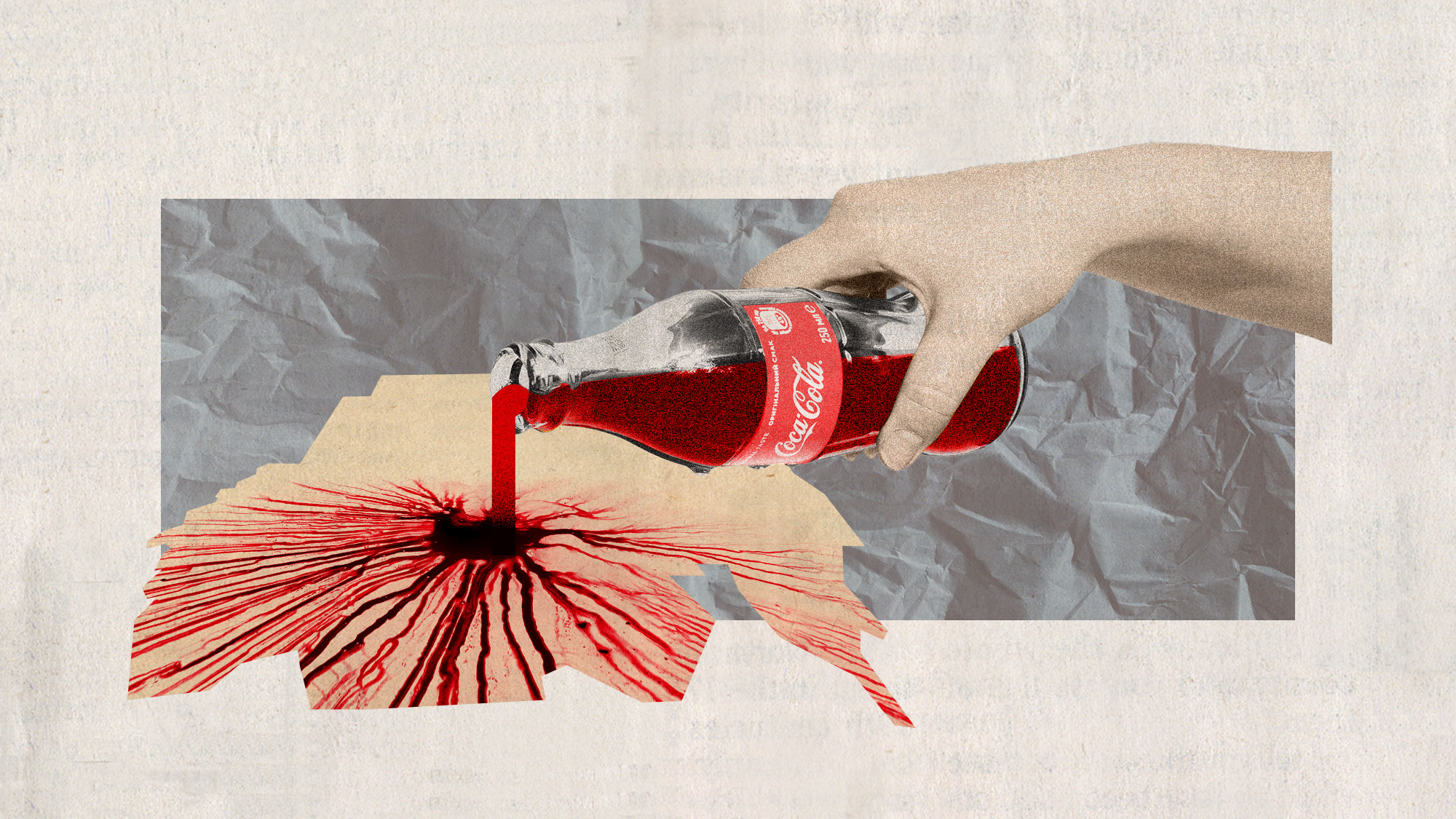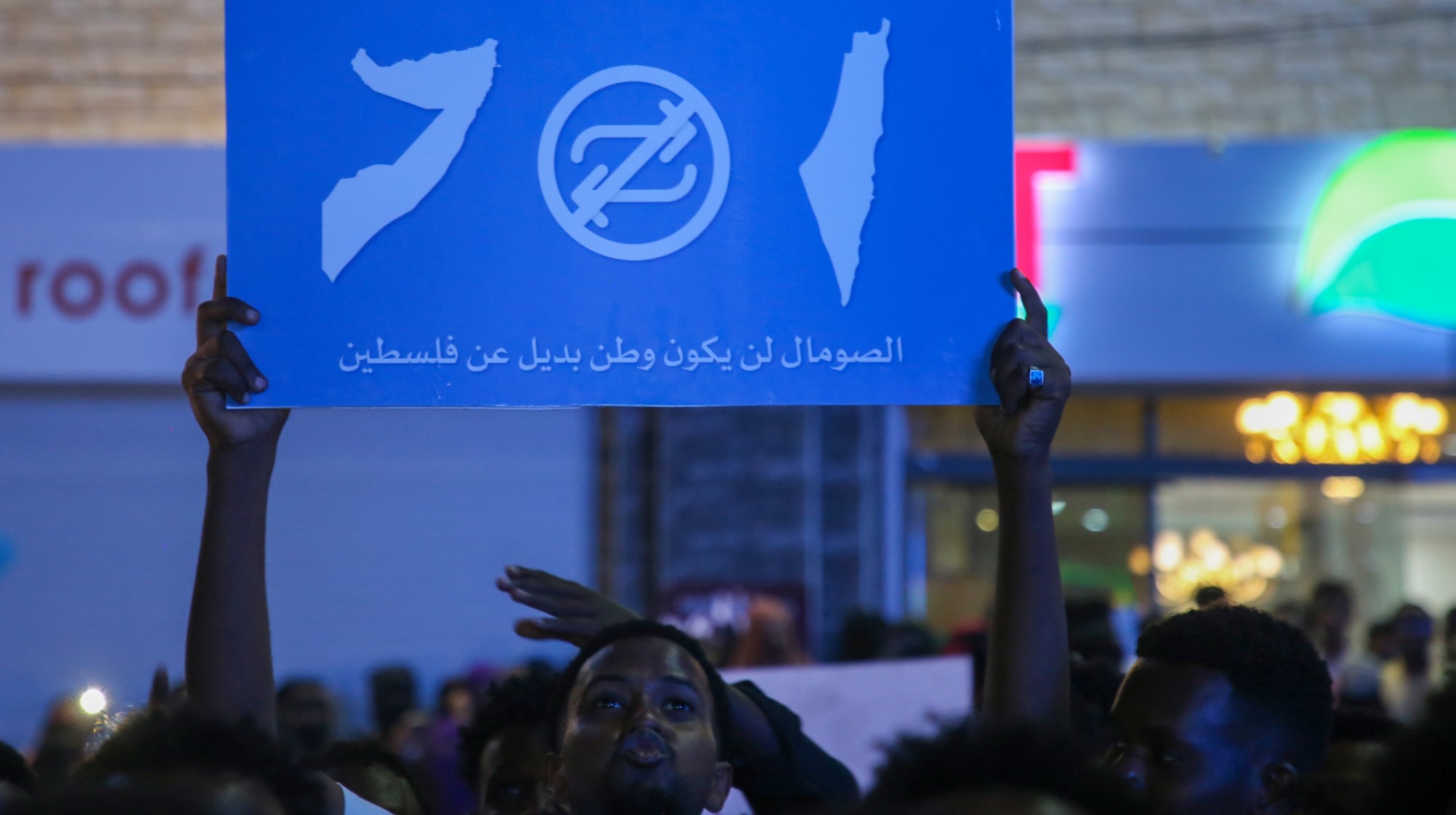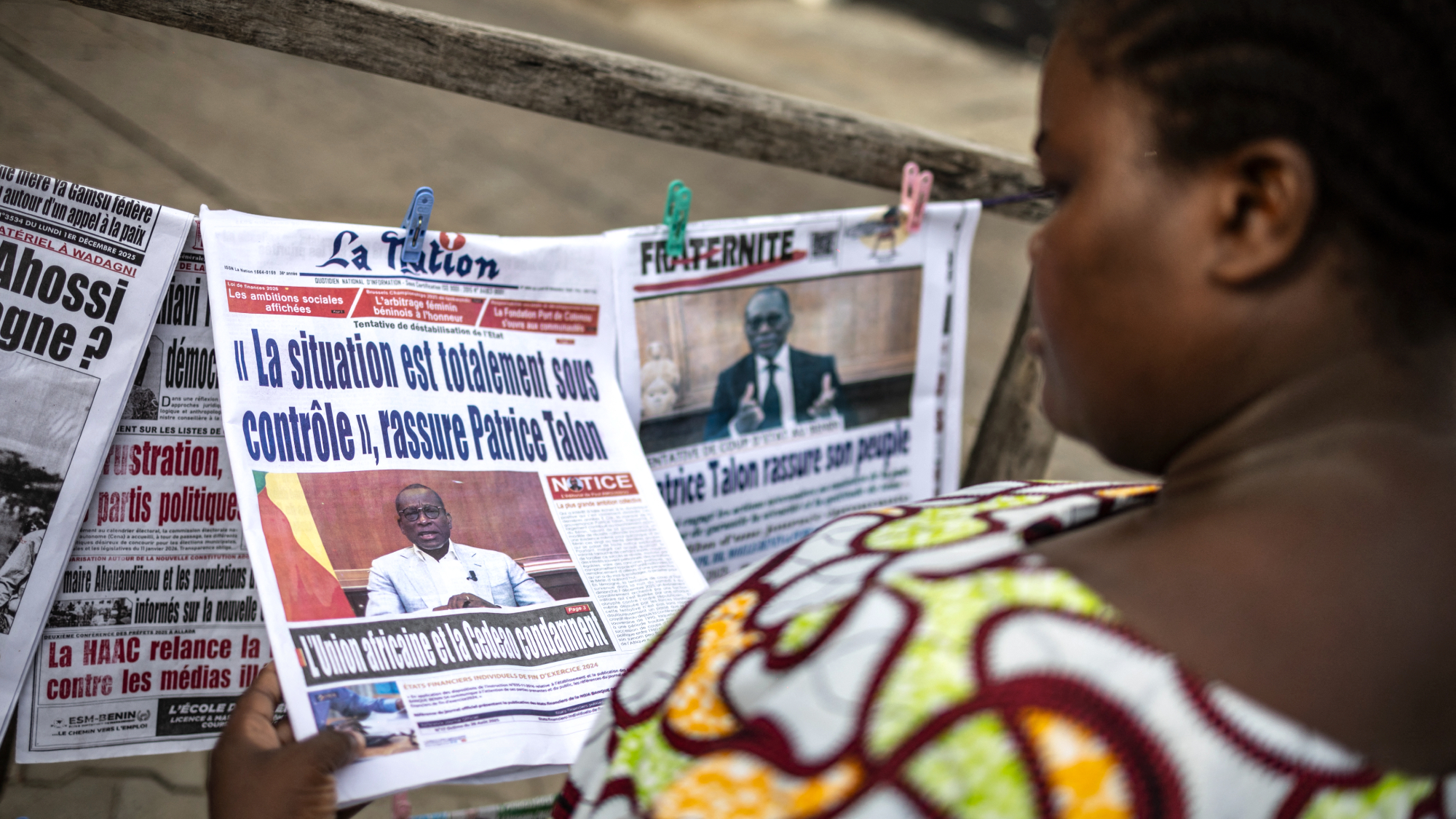An ingredient in Coca-Cola may be funding Sudan's war
Global trade in gum arabic centres on the African nation – and proceeds bankroll conflict between the army and paramilitary rebels

A free daily email with the biggest news stories of the day – and the best features from TheWeek.com
You are now subscribed
Your newsletter sign-up was successful
Westerners' consumption of a little-known tree gum – used in everything from Coca-Cola and Nestlé pet food to L'Oréal lipsticks and M&M sweets – could be funding both sides in Sudan's bitter civil war.
Gum arabic, derived from the sap of acacia trees, is widely used as a stabiliser, thickener and binding agent. For global billion-dollar consumer companies, "uninterrupted access to this key ingredient is non-negotiable", said financial news site Finshots.
About 80% of the world's gum arabic is harvested in Sudan, where the acacia trees stretch from border to border. But the sap is "increasingly being trafficked from rebel-held areas" of the war-torn nation, industry sources told Reuters. This is "complicating Western companies' efforts" to disengage their supply chains from the devastating conflict.
The Week
Escape your echo chamber. Get the facts behind the news, plus analysis from multiple perspectives.

Sign up for The Week's Free Newsletters
From our morning news briefing to a weekly Good News Newsletter, get the best of The Week delivered directly to your inbox.
From our morning news briefing to a weekly Good News Newsletter, get the best of The Week delivered directly to your inbox.
Ancient sap, distinct qualities
Humans have been making use of gum arabic for millennia, wrote biotechnology professor Asgar Ali in The Conversation. The earliest recorded use dates back to 2000BC, when ancient Egyptians "employed it in foodstuffs, hieroglyphic paints and mummification ointments".
The gum's "distinct qualities and water solubility" mean it's used today across a range of sectors, including medicines, cosmetics, textiles, and food and drink. And Sudan, with its "vast acacia forests" and "liberalised" market, is a "significant producer" and "key player in the processing and export".
But, for decades, Sudan's gum arabic industry has "faced political instability, civil conflicts and economic challenges". Since the start of the current war, exports have been "severely affected". If the fighting continues, stockpiles could run out.
'Directly financing the fighting'
When the US sanctioned Sudan in the 1990s for its then leader Omar al-Bashir's alleged support for terrorism, president Bill Clinton created a special exemption, known as E414, for trade in gum arabic.
A free daily email with the biggest news stories of the day – and the best features from TheWeek.com
A decade later, when Sudan increasingly "faced Western pressure and sanctions over the bloody conflict in Darfur", gum arabic was used as "leverage", said Al Jazeera. Sudan's ambassador to the US "famously held up a Coca-Cola bottle at a news conference and declared: 'I can stop that gum arabic, and all of us will have lost this'".
After 2009, "international pressures to liberalise the trade" from government control increased, said Finshots, and private entities "entered the picture". Then civil war broke out in April 2023 between the government's Sudanese Armed Forces (SAF) and the paramilitary rebel group, the Rapid Support Forces (RSF). And, last year, the RSF – who have been accused of ethnic cleansing and genocide – "gained extensive control of the trade" and the gum-harvesting regions.
Now, the sap has become "a key source of funding for both sides", said The Wall Street Journal. "AK-47 toting" RSF fighters control the major agricultural routes, and collect money from traders, while the Sudanese military, which runs the de-facto government, "levies taxes and other tariffs". Proceeds from exports are "directly financing this fighting", said Sudanese academic Rabie Abdelaty.
But few Western companies are taking active steps to avoid Sudanese gum arabic, said the paper. Some have argued that doing so would "hurt hundreds of thousands of Sudanese who depend on the sap for their livelihoods", against the backdrop of growing famine.
But it is also logistically difficult. The raw product is "making its way to Sudan's neighbours without proper certification", sources told Reuters. Recently, traders in countries with lower production, such as Chad and Senegal, or which "barely exported it before the war" – Egypt and South Sudan – have begun to "aggressively" offer it at cheap prices, "without proof it is conflict-free".
"Today, the gum in Sudan, I would say all of it is smuggled," said Herve Canevet, global marketing specialist at food-ingredients supplier Eco-Agri, "because there's no real authority in the country."
Both Nestlé and Coca-Cola declined to comment to Reuters, while L'Oréal and M&Ms maker Mars "did not return requests for comment".
Harriet Marsden is a senior staff writer and podcast panellist for The Week, covering world news and writing the weekly Global Digest newsletter. Before joining the site in 2023, she was a freelance journalist for seven years, working for The Guardian, The Times and The Independent among others, and regularly appearing on radio shows. In 2021, she was awarded the “journalist-at-large” fellowship by the Local Trust charity, and spent a year travelling independently to some of England’s most deprived areas to write about community activism. She has a master’s in international journalism from City University, and has also worked in Bolivia, Colombia and Spain.
-
 Political cartoons for February 15
Political cartoons for February 15Cartoons Sunday's political cartoons include political ventriloquism, Europe in the middle, and more
-
 The broken water companies failing England and Wales
The broken water companies failing England and WalesExplainer With rising bills, deteriorating river health and a lack of investment, regulators face an uphill battle to stabilise the industry
-
 A thrilling foodie city in northern Japan
A thrilling foodie city in northern JapanThe Week Recommends The food scene here is ‘unspoilt’ and ‘fun’
-
 EU and India clinch trade pact amid US tariff war
EU and India clinch trade pact amid US tariff warSpeed Read The agreement will slash tariffs on most goods over the next decade
-
 Why recognizing Somaliland is so risky for Israel
Why recognizing Somaliland is so risky for IsraelTHE EXPLAINER By wading into one of North Africa’s most fraught political schisms, the Netanyahu government risks further international isolation
-
 Benin thwarts coup attempt
Benin thwarts coup attemptSpeed Read President Patrice Talon condemned an attempted coup that was foiled by the West African country’s army
-
 West Africa’s ‘coup cascade’
West Africa’s ‘coup cascade’The Explainer Guinea-Bissau takeover is the latest in the Sahel region, which has quietly become global epicentre of terrorism
-
 Massacre in Darfur: the world looked the other way
Massacre in Darfur: the world looked the other wayTalking Point Atrocities in El Fasher follow decades of repression of Sudan’s black African population
-
 Nigeria confused by Trump invasion threat
Nigeria confused by Trump invasion threatSpeed Read Trump has claimed the country is persecuting Christians
-
 Sudan stands on the brink of another national schism
Sudan stands on the brink of another national schismThe Explainer With tens of thousands dead and millions displaced, one of Africa’s most severe outbreaks of sectarian violence is poised to take a dramatic turn for the worse
-
 Protesters fight to topple one of Africa’s longstanding authoritarian nations
Protesters fight to topple one of Africa’s longstanding authoritarian nationsIn the Spotlight Cameroon’s president has been in office since 1982